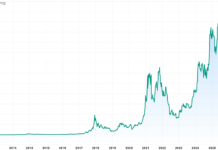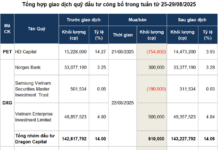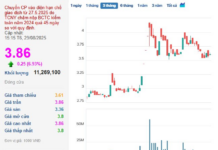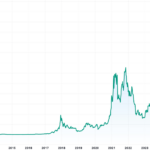Onsite Solar for Electricity Self-Consumption: A Step Towards Green Economy
Hanoi, April 24, 2024 – The Ministry of Industry and Trade (MOIT) held a workshop to discuss the draft Decree of the Government on the mechanism for direct power purchase (DPPA) between electricity generators and large electricity consumers; the mechanism for developing natural gas and LNG power projects; and the mechanism for developing rooftop solar power for self-consumption.
DPPA MECHANISM THROUGH PRIVATE LINES AND THE NATIONAL GRID
Regarding the draft Decree stipulating the mechanism for direct power purchase between renewable energy generators and large electricity consumers (DPPA mechanism), Mr. Tran Viet Hoa, Director of the Electricity Regulatory Authority (MOIT), said that the structure of the Draft 2 of the Decree on DPPA mechanism between renewable energy generators and large electricity consumers is expected to consist of 6 Chapters, 34 Articles, and 2 Appendices.
To ensure the effective implementation of the Decree after its promulgation, Draft 2 of this Decree provides for the mechanism for direct power purchase between renewable energy generators and large electricity consumers through private lines and the national grid.
For direct power purchase through private lines, renewable energy generators and large electricity consumers participating in the DPPA mechanism must comply with the provisions of the current legislation.
For direct power purchase through the national grid, Draft 2 of the Decree stipulates that direct power purchase through the national grid applies to renewable energy generators that own solar power plants or wind power plants with a designed capacity of 10MW or more, directly participating in the competitive wholesale electricity market, and large electricity consumers connected at voltage levels of 22kV or higher with an average monthly consumption of 500,000 kWh.
This provision aims to avoid administrative procedures and arbitrary approvals, ensuring the development of open regulations based on a review of technical requirements under current regulations for interconnection and operation in the power system (power plants with a capacity of 10 MW or more, when connecting to the distribution grid, need to equip information systems, SCADA systems, etc.) and the demand for clean energy in production by investors and international organizations.
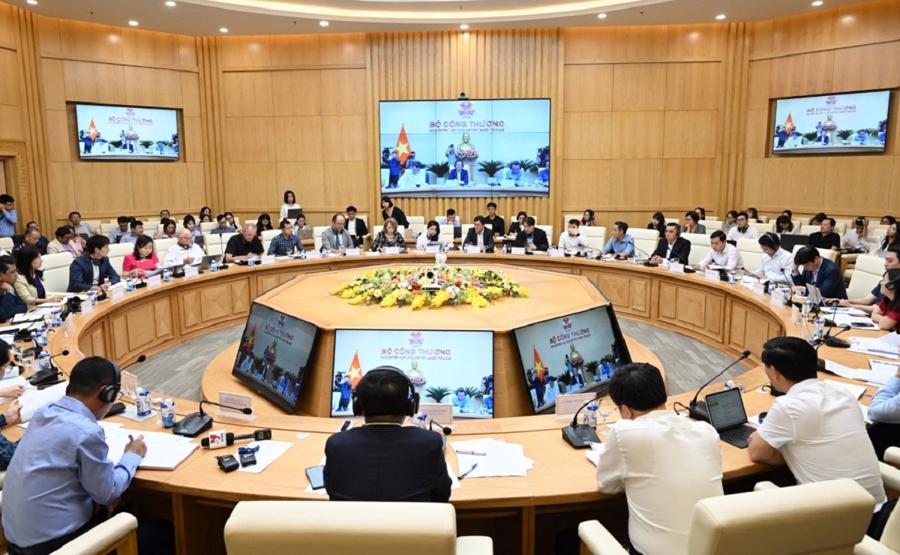
Regarding the expansion of participants in the direct power purchase mechanism, the Draft proposes that “the Ministry of Industry and Trade be assigned to preside over the assessment and report to the Government for consideration of expanding the subjects participating in the direct power purchase mechanism in accordance with the socio-economic development situation of each period and the development situation of the competitive electricity market”.
Additionally, Mr. Tran Viet Hoa said that to quantify the demand of renewable energy generators and electricity consumers for the DPPA mechanism, in May 2022, international consultants conducted an assessment survey with the following results:
Regarding the demand for participation in the DPPA mechanism by the selling party (renewable energy generators), out of 106 projects with a capacity of 30MW or more (42 solar power projects and 64 wind power projects) listed in the 7th Revised Electricity Plan, the survey was sent to 95 projects and 67 projects responded. Specifically, 24 projects (installed capacity of 1,773 MW) wish to participate (35.8%); 17 projects (installed capacity of 2,836 MW) are considering the conditions for participation, the ability to find and sign contracts with customers (25.4%); and 26 projects responded that they do not have the need to participate (38.8%).
Regarding the demand for participation in the DPPA mechanism by the electricity purchasing party (customers using electricity are organizations purchasing electricity for production purposes from voltage levels of 22 kV and above), the survey was sent to 41 customers, of which 20 customers (about 50%) responded that they wish to participate in the DPPA mechanism with a total estimated demand of approximately 996MW.
Therefore, in order to have a basis for implementing the tasks assigned by the National Assembly and the Government under Resolution No. 55-NQ/TW, the Electricity Law, Resolution No. 103/2023/QH15, and Resolution No. 937/NQ-UBTVQH15, and in accordance with practical conditions, the Ministry of Industry and Trade considers it necessary to develop a Decree stipulating the DPPA mechanism.
MECHANISM FOR TRANSITIONING GAS PRICES TO ELECTRICITY PRICES
Regarding the mechanism for developing gas-fired power, according to the 8th Electricity Plan, the total capacity of gas-fired power plant projects to be invested, constructed, and put into operation by 2030 is 30,524 MW (23 projects), of which: the total capacity of domestic gas-fired power plants is 7,900 MW (10 projects), and the total capacity of LNG-fired power plants is 22,624 MW (13 projects).
In compliance with the direction of the Prime Minister, the Ministry of Industry and Trade has completed the draft Decree stipulating the mechanism for developing natural gas and LNG power projects. The draft Decree consists of 6 Articles, with 3 main contents:
Regarding the commitment of electricity consumption through long-term contracts for LNG-fired power plant projects (Article 3), for BOT power projects, the Law on Investment under the Public-Private Partnership (PPP Law) has allowed BOT projects to apply the offtake mechanism (point a, Article 45 of the PPP Law), BOT projects will develop capital arrangements and sign power purchase contracts with EVN.
For IPP power projects that are not BOT projects, after completion, they will participate in the electricity market.
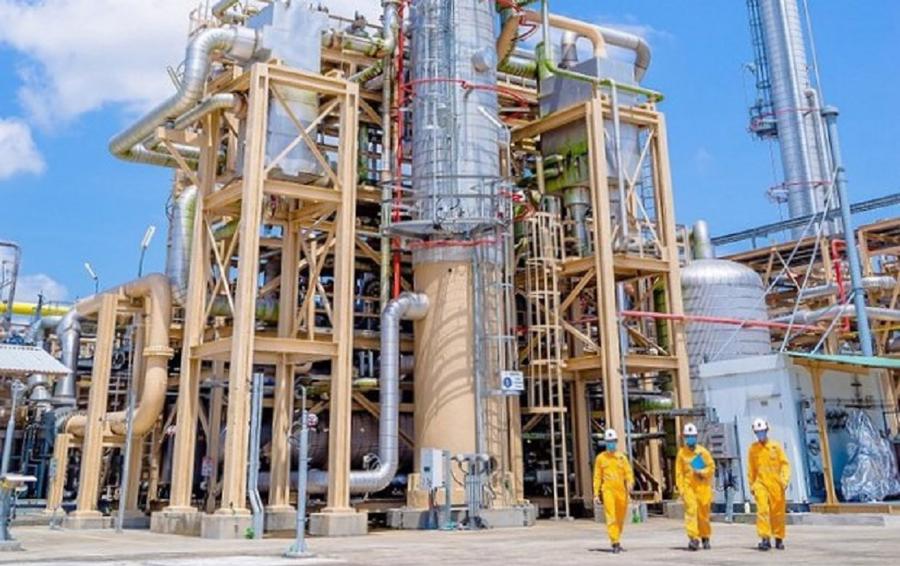
The draft Decree stipulates that: (1) the proportion of electricity consumed through long-term contracts is agreed upon by the power generator and the power purchaser; (ii) in case the two parties cannot reach an agreement, the Electricity of Vietnam Group (EVN) will calculate and determine the proportion of electricity consumed through long-term power purchase contracts in order to ensure feasibility in attracting investment, avoid strong impacts on retail electricity prices, and balance finances; (iii) to ensure energy security, implement the 8th Electricity Plan, and attract investors in gas-fired power projects, the Prime Minister will stipulate the minimum proportion of electricity consumed through long-term contracts during the loan repayment period of the power plant project, but not exceeding 07 years, ensuring equal competition with other types of power sources in the electricity market. The power generator and the power purchaser will negotiate the proportion of electricity consumed through the power purchase contract at the minimum level stipulated by the Prime Minister.
Regarding the mechanism for transitioning gas prices to electricity prices (Article 4), the draft Decree stipulates that: (i) for key oil and gas projects that contribute significantly to developing the economy, ensuring national energy security, national defense, and safeguarding Vietnam’s sovereignty, the Government agrees in principle to transition gas prices to electricity prices of power plants; (ii) the Ministry of Industry and Trade will guide the mechanism for consuming the upstream gas production of Ca Voi Xanh and Block B gas fields.
Regarding other issues of power purchase contracts (Article 5), for participation in the electricity market, the power generator signs a contract with EVN in accordance with the form issued by the Ministry of Industry and Trade to participate in the competitive wholesale electricity market and sell the power plant’s electricity to the spot electricity market. The cost of purchasing electricity from domestic natural gas-fired power plants and imported LNG is reasonable, legitimate, and taken into account in the calculation and adjustment of retail electricity prices.
The language used in the contract is Vietnamese. The power generator and the power purchaser may agree to supplement the contract using English, and the parties may agree that English will take precedence. The draft Decree stipulates that the parties may agree that the governing law of the power purchase contract is a foreign law.
Regarding the draft Decree on the mechanism for encouraging the development of rooftop solar power in residential, public, and industrial areas, Mr. To Xuan Bao, Director of the Electricity and Renewable Energy Department (Ministry of Industry and Trade), said that the draft is designed for on-site consumption, without selling electricity to other organizations or individuals.
Accordingly, if not connected to the national grid, production will not be limited in capacity. If connected to the grid, agencies, organizations, and individuals have the right to release or not release excess electricity into the national grid. However, the electricity company will record the electricity output at a price of 0 VND and will not

















